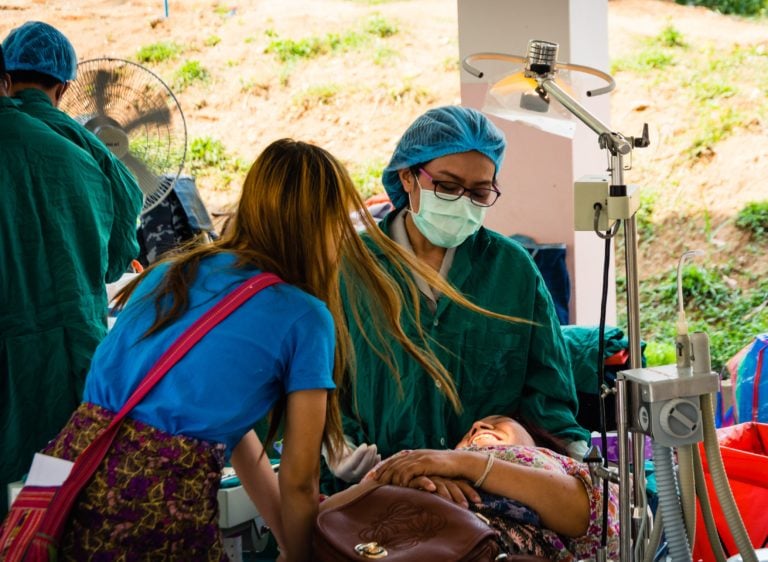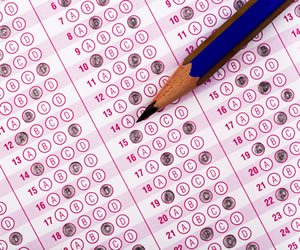
MCAT
Download the 2023 Edition of the Nymeria 100-day MCAT study plan – rebuilt with all the latest recommendations for materials! While we have made minor updates to the article below, we have not updated all ... Read more
Nymeria
Updated May 31, 2023 by Nymeria

Podiatrist Q&A
Dr. Jeffrey Whitaker knew at a very young age that he wanted to be a doctor, though his specialty remained uncertain until he discovered podiatric medicine as an undergraduate pre-med student. Having graduated Magna Cum ... Read more
Student Doctor Network
Updated June 26, 2022 by Student Doctor Network

Pre-Medical
Once you have been selected for an interview at a medical school, you will have the opportunity to visit the campus. Though your priority during this visit will naturally be to excel in your interview, ... Read more
Anubodh “Sunny” Varshney
Updated June 26, 2022 by Anubodh “Sunny” Varshney

Pre-Medical
The interview is one of the most important steps in the medical school application process. It’s your chance to get to know the medical school in person while demonstrating good communication skills, professionalism, maturity, and ... Read more
AAMC Staff
Updated June 26, 2022 by AAMC Staff

Pre-Health
If you’re interested in a career in medicine, one of the most important and helpful people will be your college’s pre-health advisor. There’s a lot of planning and preparation to do before you’ll be ready ... Read more
AAMC Staff
Updated August 16, 2022 by AAMC Staff

Pre-Health
The personal statement is, for many, one of the most dreaded aspects of the medical school application. It can be quite intimidating to be given a blank space so large, with the expectation that you ... Read more
Brent Schnipke
Updated June 26, 2022 by Brent Schnipke

Pre-Medical
Unlike other graduate school admissions processes, where there is typically only one round of applications, medical schools often have a primary application and a secondary application. The secondary application generally involves one or more essay ... Read more
Anubodh “Sunny” Varshney
Updated June 26, 2022 by Anubodh “Sunny” Varshney

MCAT
Preparing for the MCAT during the summer months is a choice that many pre-medical students make – and for good reason. Summer prep provides several advantages over simultaneously juggling coursework with MCAT review during the ... Read more
Anubodh “Sunny” Varshney
Updated June 27, 2022 by Anubodh “Sunny” Varshney

Pre-Medical
All in all, studying abroad provides students with invaluable personal growth, which will translate to professional growth in several ways. Students will become more culturally aware, which will bolster their ability to work with and ... Read more
Anubodh “Sunny” Varshney
Updated June 27, 2022 by Anubodh “Sunny” Varshney

Pre-Medical
College as a pre-medical student can be challenging; unlike many other programs, pre-medical programs are begun with the intent not to get a job, but to continue schooling beyond college. Central to the many decisions ... Read more
Brent Schnipke
Updated June 27, 2022 by Brent Schnipke

Pre-Medical
There’s a popular phrase, “If you’ve seen one medical school… you’ve seen one medical school.” Every school is completely different, so it’s a good idea to thoroughly research what programs would be best for you ... Read more
AAMC Staff
Updated June 27, 2022 by AAMC Staff

MCAT
Retaking the MCAT requires a different approach to prep than your first time around. Because you already know your strengths and weaknesses, your study sessions should be more efficient than those during your initial MCAT ... Read more
Anubodh “Sunny” Varshney
Updated June 27, 2022 by Anubodh “Sunny” Varshney

Pre-Medical
The AAMC Pre-Med Team tells you what you need to know before AMCAS opens for 2016.
AAMC Staff
Updated June 27, 2022 by AAMC Staff

Pharmacist Q&A
Applying to professional school can be one of the most daunting challenges of a student’s career. The pharmacy admissions process is no exception, and students may find it overwhelming at times. The Student Doctor Network ... Read more
Student Doctor Network
Updated June 27, 2022 by Student Doctor Network

Pre-Dental
By Travis Barr, DDS This article is reprinted with permission from the American Student Dental Association. It originally appeared in December 2014 issue of ASDA News. For me, the road to dentistry has been more ... Read more
Travis Barr
Updated June 27, 2022 by Travis Barr

Pre-Medical
I am a reapplicant. Those are four words that every reapplicant shies away from and for understandable reasons, having been one myself. Those words are full of fear, self-doubt, and perhaps some shame. And that’s ... Read more
Lee Burnett
Updated June 27, 2022 by Lee Burnett

MCAT
Taking the MCAT can be a nerve-wracking experience. In fact, many students develop significant test anxiety as a result of the MCAT’s role in the medical school admissions process. If this scenario describes you, here ... Read more
Anubodh “Sunny” Varshney
Updated June 27, 2022 by Anubodh “Sunny” Varshney

Pre-Medical
Summer is a great time to get medically related experience, which can be an important piece of a medical school application. You can volunteer, shadow a doctor, work in a lab, or participate in a ... Read more
AAMC Staff
Updated June 27, 2022 by AAMC Staff

Pre-Medical
Unfortunately, roughly half of all applicants to American allopathic medical schools will not receive an acceptance letter this spring. If your application process has concluded in this disappointing manner, ask yourself these questions before you ... Read more
Anubodh “Sunny” Varshney
Updated June 27, 2022 by Anubodh “Sunny” Varshney


















